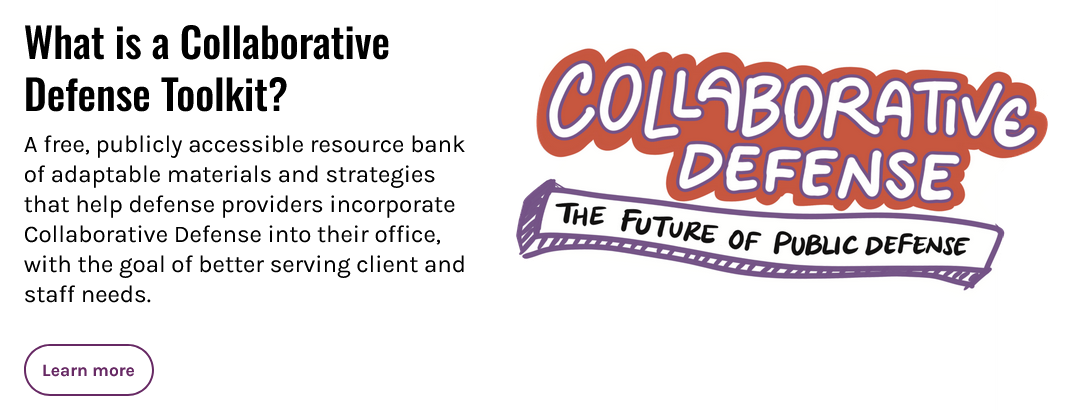"Where a white legal professional might see stats, I see people. Because, after all, the systemic issues that affect my clients have also affected me."

In America, a person is sent to jail every few minutes. The ripple effect of those minutes is felt for years to come. In the blink of an eye, families become homeless, people lose their jobs, and futures are rewritten—all starting with an arrest.
Many years ago, I represented an education worker who was arrested and given a summons with a court date three months away. In those mere three months, she lost her job and faced eviction. Although the case was resolved with her complete acquittal, the damage was done.
Like her, most people who have their lives ruined by involvement with our court system aren't incarcerated, or don't stay incarcerated forever. In our current system, people who have been to prison or jail return home sicker, poorer, deeper in debt (often caused by the system itself), and less able to thrive—placing them at an even greater risk of recidivism.
Every day in jail that we can eliminate doesn't just keep more families housed and working and more children home with their parents at dinner time, it also keeps our communities safer. As public defenders, we are best situated to address this, and the will to achieve harm reduction is there, but the roadmap often isn’t.
That’s why in 2022, PFJ introduced Collaborative Defense, a framework that enables defenders to implement client-led representation, addressing the underlying causes and preventing many of the most severe consequences of criminal legal involvement.
Take one of our clients in California: Several years ago, they faced separation from their daughter following an arrest. Instead of jail time, they were connected with a Collaborative Defense team that helped them complete inpatient substance-use treatment programs. This led to the reunification with their daughter and a complete dismissal of their criminal case.
Outcomes like these led us to team up with the Robert Wood Johnson Foundation and the American Bar Endowment to launch a Collaborative Defense Toolkit—a free, comprehensive, do-it-yourself collection of resources that equips public defender offices with the building blocks they need to implement their version of Collaborative Defense.
Public defenders are the most well-positioned individuals to prevent the devastating harms of incarceration. For one thing, public defenders have incredible reach. In this country’s courts, 8 out of 10 people cannot afford a lawyer and rely on the public defense system. You probably know someone represented by a public defender.
But we can’t reach all of America’s 5,900 defender systems by going one by one.
No two jurisdictions are the same, a fact I’ve observed repeatedly while working with defenders across the country, like the Stanislaus County Public Defender in California, an ambitious defense office whose non-attorney client support specialists were so bogged down by the criminal legal system’s deluge of demands that they could not work with clients to address needs beyond the legal case.
What might have worked in other jurisdictions may not be effective in Stanislaus County, due to its unique socio-political makeup. We developed Collaborative Defense and the toolkit to be adaptable, because when we work with defenders to find and define their unique solution — in Stanislaus, this meant revamping their Client Social Services role and unit to expand service provision — we can achieve phenomenal results.
Since 2018, Collaborative Defense teams have helped eliminate over 8,500 years of incarceration, aided more than 23,000 individuals, and assisted clients in achieving their stated goals approximately 75% of the time, providing over 21,000 discrete services to public defender clients to date.
The toolkit was developed as a one-stop shop for defenders who want to take action. It is built on a foundation of valuable lessons from defenders across the country, all with different needs and politics, such as the Missouri State Public Defender, who implemented a statewide Holistic Defense Services Unit, and in Chicago, where the defender has just opened two new community defense centers.
This toolkit is not just a resource. It’s a call to action. And it’s grounded in one unshakable belief: every person deserves a defense team that recognizes their full humanity.
A strong defense isn’t built in courtrooms alone. It’s built on the choices we make about who gets support, who gets second chances, and who gets to be seen as more than their worst mistake.
We are building a criminal legal system that defends people and the well-being of their communities—not just cases. With this toolkit, public defenders can lead the way.